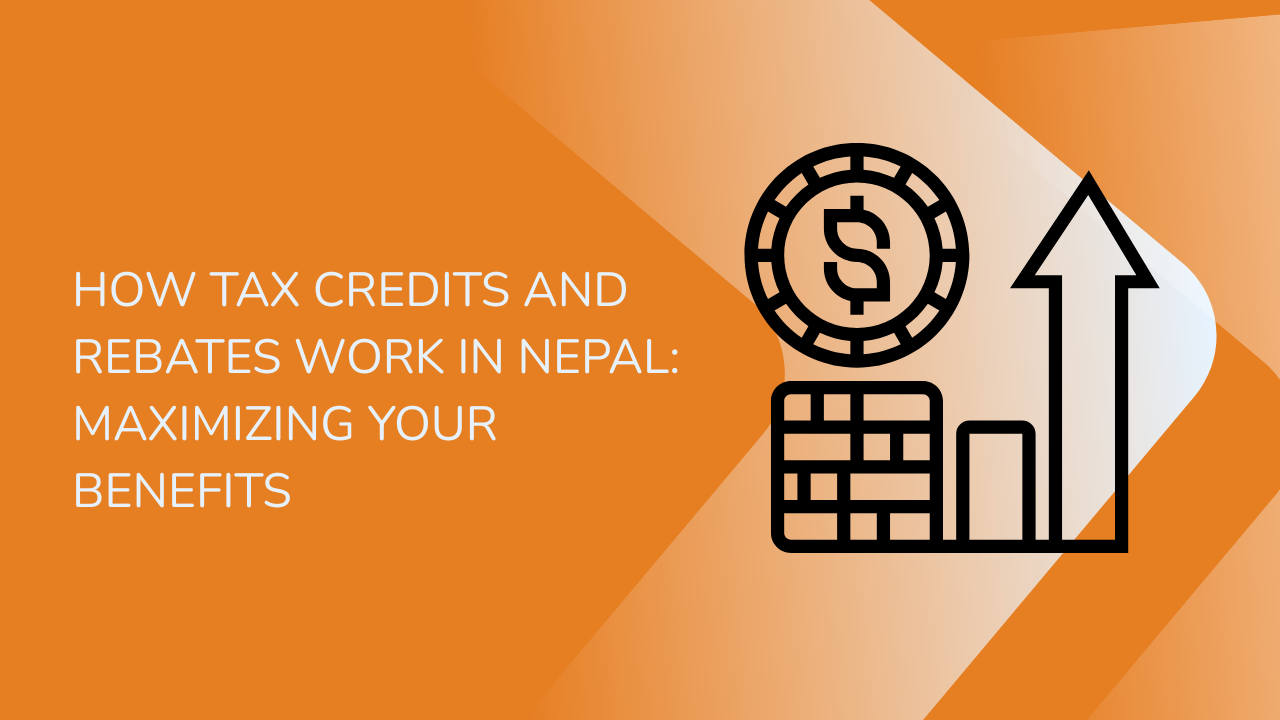Share this Article
Navigating the tax system can be challenging, especially when trying to reduce your tax liability legally and efficiently. In Nepal, the government offers various tax credits and rebates to support individuals and businesses, encourage economic growth, and promote social welfare. Understanding these provisions can significantly lower your tax bill and help you make the most of your earnings.
This article offers a deep dive into the types of tax credits and rebates available in Nepal, who is eligible, how to claim them, and how you can maximize these benefits to improve your financial well-being.
What Are Tax Credits and Rebates?
Tax credits are amounts that taxpayers can subtract directly from the taxes they owe. Unlike deductions, which reduce taxable income, credits reduce the tax liability itself.
Tax rebates, on the other hand, refer to the return of excess tax payments. If you paid more tax than required, you could claim a rebate after filing your income tax return.
Types of Tax Credits Available in Nepal
1. Personal Tax Credit (Exemption Thresholds)
Nepal sets personal income tax exemption thresholds for individuals based on their status:
- Individual: NPR 500,000
- Married Couple: NPR 600,000
- Senior Citizens (above 60): Additional NPR 100,000
Income below these thresholds is not taxed. This acts as an automatic credit for low-income earners.
2. Medical Tax Credit
Medical expenses can qualify for a tax credit of up to 15% of the expenses, with a cap of NPR 750 per month for employed individuals, if supported by proper documentation.
3. Life Insurance Premium Credit
Premiums paid on life insurance policies qualify for a tax credit of up to NPR 25,000 per year. This encourages financial protection and long-term savings.
4. Retirement Fund Contributions
Contributions to recognized retirement funds, such as the Employees Provident Fund (EPF), Citizen Investment Trust (CIT), and Retirement Fund, qualify for tax credits up to NPR 500,000 or 33% of taxable income, whichever is lower.
5. Education Loan Credit
Interest paid on education loans is eligible for deduction, helping families support higher education.
6. Renewable Energy and Green Investments
Certain credits are available for investments in renewable energy projects or energy-efficient systems for both individuals and businesses.
Tax Rebates and Refunds
1. Tax Refund for Overpayment
If your advance tax, TDS (Tax Deducted at Source), or provisional tax payments exceed your actual liability, you can apply for a refund after filing your tax return.
2. Export Incentives for Businesses
Businesses involved in exports may receive rebates on customs duties and VAT, promoting trade competitiveness.
3. Tax Rebate for Industries in Remote Areas
Businesses operating in underdeveloped or remote regions of Nepal may be eligible for tax rebates ranging from 10% to 40%, depending on the area's classification.
How to Claim Tax Credits and Rebates
For Individuals:
- Maintain documentation (receipts, insurance policies, loan statements).
- Include eligible credits in your annual tax return (ITR).
- Use certified tax software or consult a tax professional.
For Businesses:
- Maintain accurate financial records.
- Declare eligible expenses or investments.
- File VAT returns, income tax returns, and request rebates as needed.
Tips to Maximize Your Tax Benefits
- Plan Ahead: Invest early in tax-saving instruments like CIT, EPF, or insurance.
- Keep Receipts: Document every eligible expense for easy claim verification.
- Use Tax Tools: Use government-approved tools or portals for filing returns accurately.
- Consult Experts: Tax professionals can help you identify credits you might miss.
- Stay Updated: Tax laws change. Keep up with the latest provisions from the Inland Revenue Department (IRD).
Final Thoughts
Understanding and utilizing tax credits and rebates in Nepal can result in significant financial savings. Whether you're an individual taxpayer or a business owner, these incentives are designed to support personal well-being and economic activity. Don’t leave money on the table—educate yourself, stay organized, and make informed financial decisions.
Categories:
Industry Trends & News
Tags:
E-commerce






